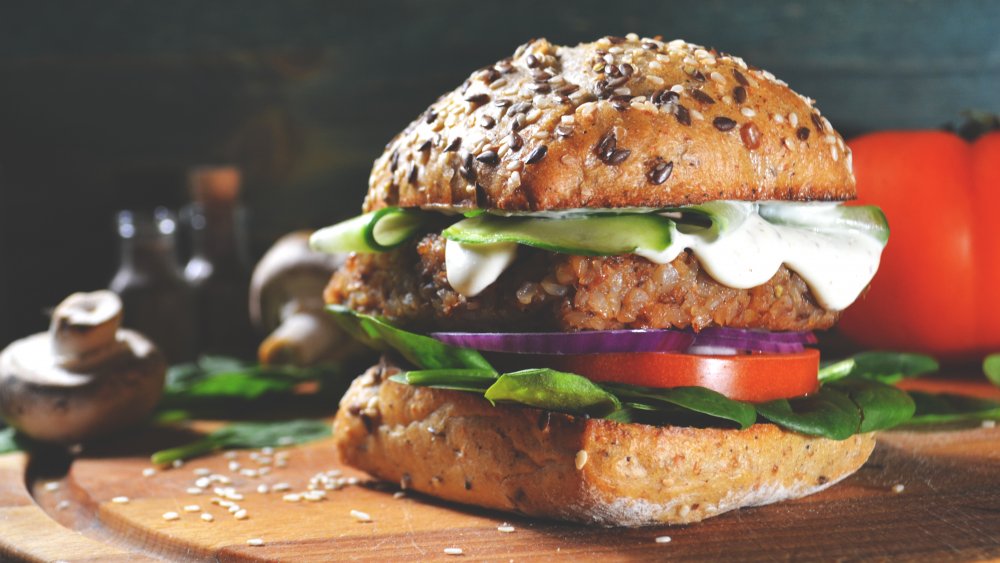Here's Why You Might Want To Think Twice About Eating Veggie Burgers
They've infiltrated fast food. They've inspired countless "Are they actually healthier?" debates. They've made brands like Impossible Foods and Beyond Meat into household names.
Controversy and successes aside, one thing's for sure: Veggie burgers have come a long way since their inception. Yes, they were once ostracized as "hippie food ... with the flavor somewhere between sawdust and dog kibble," according to The Christian Science Monitor. But as plant-based eating has moved from extreme to mainstream, veggie burgers are now everywhere.
To be fair, not all veggie burgers are created equal, especially as the number of options has exploded in recent years. There are those made with a soy base, like Boca Burger. Some achieve hearty bulk from a combo of beans, grains, and veggies, like selections from Hilary's brand, or the health-focused Dr. Praeger's and Engine 2. Other modern takes, like Beyond — lauded for its authentic meat-tastic taste — get their protein power from legumes like peas. One brand, Quorn, recreates animal-like texture via a fungus called mycoprotein.
In other words, no one can say across the board that all veggie burgers are perhaps not as dietarily desirable as one might assume. But it's wise to scan the nutritional stats and the list of ingredients before chowing down on what many consider a healthier option versus the meat-based "real thing."
The pros and cons of veggie burgers
Soaring sodium counts are one potential pitfall of veggie burgers — an obvious issue for those with high blood pressure or heart disease risk factors. When comparing three big-name brands with lean beef or turkey burgers, sodium clocked in at four to five times the milligrams for the meat-free options.
Some veggie burgers may also contain high amounts of saturated fat. And their processing could leach nutrients from the vegetables incorporated in the recipe, per Greatist. And though the New York Daily News linked veggie burgers to a "potentially harmful chemical" called hexane in 2010, other sources later questioned the results and implications of that study, per VeryWell Fit.
On the positive side, a study published in The American Journal of Clinical Nutrition found that participants who subbed two "plant-based alternative meats" for animal meat for eight weeks experienced improvements in "several cardiovascular disease risk factors." And, though many posit that plant-based burgers are better for the environment, that claim, too, has been disputed, per NBC News.
The takeaway? Like most food-related debates, clear-cut answers aren't often easy to find. But there is one surefire way to monitor exactly what you're consuming when you crave a veggie burger: Hit the kitchen and make your own from scratch.

